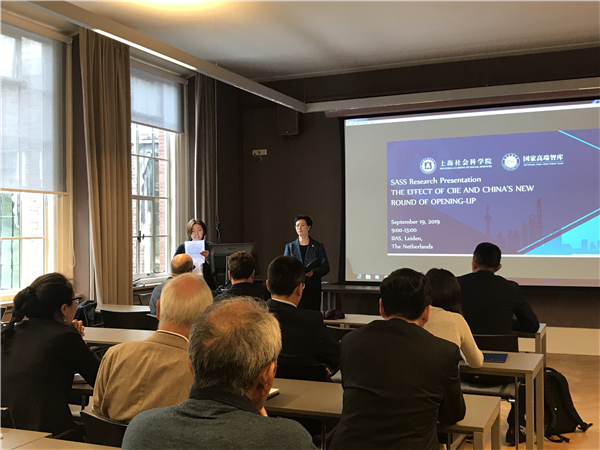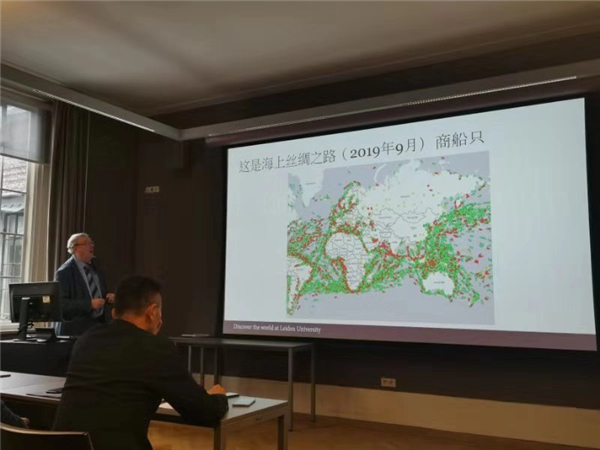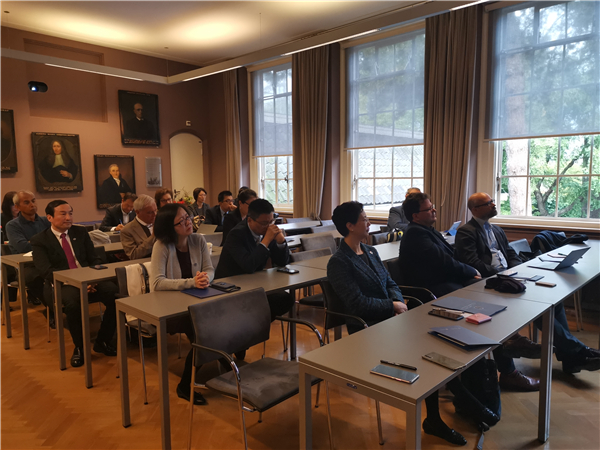Shanghai scholars shed light on China’s new round of opening-up during a seminar in Leiden, the Netherlands on September 19.
The seminar, themed “The Effect of CIIE and China’s New Round of Opening-up,” was held at the International Institute for Asian Studies (IIAS), where representatives from the Shanghai Academy of Social Sciences (SASS) exchanged their views with European research fellows on the Belt and Road Initiative (BRI), the CIIE and their influence on global trade, especially international cooperation between China and the Netherlands.

In keynote speeches, seven SASS experts gave insightful presentations based on their research findings from different perspectives.

The Belt and Road and the CIIE have become new drivers for China’s opening up to the rest of the world. At the 2nd Belt and Road Forum for International Cooperation, China gave more prominence to the ideas of openness, green policy and integrity, taking them as the basis of and the path to the high-quality and high-standard construction of BRI. According to Dr. Wang Jian, the CIIE represents a way to promote the development of BRI through openness. The import fair, as he pointed out, is an international public event, which fully reflects the interests of all players in global trade and will promote economic globalization to be more open, inclusive, balanced and beneficial to all, so as to achieve win-win outcomes.

As statistics show, from 1978 to 2018, the total value of China’s imports increased from 18.7 billion yuan to 14.5 trillion yuan, making China the world’s second largest importer. Last November, China’s average tariff level dropped to 7.5%. According to a Qualcomm report, except for the US, China’s average tariff rate for other countries is 6.5%, which is close to the level of developed countries. This means China is infusing great impetus into its new strategy of openness, so as to integrate itself into the world economy, said Dr. Ke Jing. She said with China’s rising economic strength and its further opening-up, its influence on the global economic order is positive and enhancing.
In this context, deepening China-EU cooperation is an effective method to counter global trade protectionism and maintain world economic growth. “The interests of China-EU cooperation far outweigh differences. Deepening cooperation is beneficial to the development of both sides and a wise and inevitable choice for both,” said Sun Lixing, a research fellow at SASS. As he noted, the Netherlands, as a founding member of the European Community, has an important influence in EU. In the future, China and the Netherlands should continue to expand cooperative areas, especially in the 3rd-party markets along the Belt and Road.
When it comes to two-way investment, Sun believes that Shanghai should be the preferred destination for European investment and innovation cooperation in China, given its advantage as China’s economic center and a pioneer of China’s reform. In addition Shanghai is now making all-out efforts to become a global city of excellence by building the newly-launched sci-tech innovation board and turning itself into an IP protection highland.
Scholars and reporters from both sides also exchanged views on the upcoming second China International Import Expo (CIIE) in Shanghai.
The seminar in Leiden is the first stop in the series event entitled “Development and Consensus: Publishing Platform for Shanghai Academic Research Results,” which is aimed at promoting Shanghai overseas.
Wang Yumei, deputy Party secretary of SASS, took part and delivered a speech. Professor Philippe Peycam, director of IIAS, also attended the seminar.
